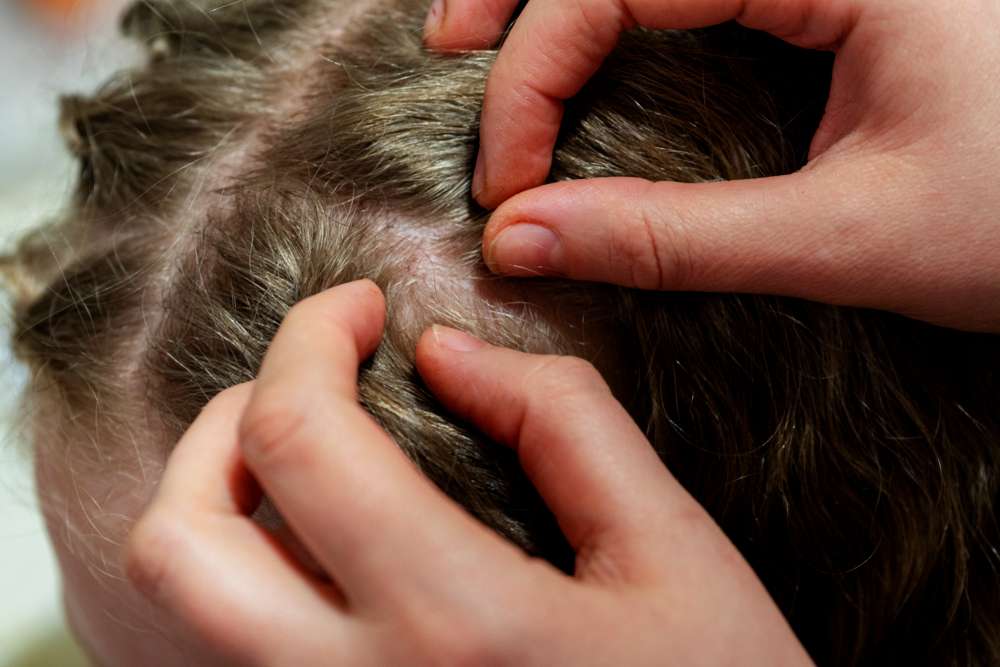Scalp Psoriasis Treatment Guide: Tips, Remedies to Manage Symptoms and More
Scalp psoriasis is a common skin condition that can cause discomfort, itching, and flaking on the scalp. While it can be challenging to manage, there are various treatments and strategies available to help alleviate symptoms and improve quality of life. This comprehensive guide explores effective tips and remedies for managing scalp psoriasis, providing valuable insights for those seeking relief.

What is scalp psoriasis and how does it differ from dandruff?
Scalp psoriasis is an autoimmune condition characterized by red, scaly patches on the scalp. Unlike dandruff, which typically results in small, white flakes, scalp psoriasis can cause thicker, silvery-white scales and may extend beyond the hairline. The condition can range from mild to severe, with some individuals experiencing itching, burning, and even hair loss. Understanding the differences between scalp psoriasis and dandruff is crucial for proper diagnosis and treatment.
What are some effective home remedies for managing scalp psoriasis?
Several natural and home remedies can help manage scalp psoriasis symptoms:
-
Coconut oil: Applying warm coconut oil to the scalp can help moisturize and reduce inflammation.
-
Aloe vera: Known for its soothing properties, aloe vera gel can be applied directly to affected areas.
-
Apple cider vinegar: Diluted apple cider vinegar rinses may help balance scalp pH and reduce itching.
-
Tea tree oil: When diluted with a carrier oil, tea tree oil can help combat inflammation and reduce scaling.
-
Oatmeal baths: Soaking the scalp in lukewarm water with colloidal oatmeal can help soothe irritation.
It’s important to note that while these remedies may provide relief for some individuals, they may not work for everyone. Always patch test new treatments and consult with a healthcare professional before trying new remedies.
What lifestyle changes can help manage scalp psoriasis symptoms?
Adopting certain lifestyle changes can significantly impact scalp psoriasis management:
-
Stress reduction: Practice stress-management techniques like meditation, yoga, or deep breathing exercises.
-
Gentle hair care: Use mild, fragrance-free shampoos and avoid harsh hair treatments or excessive heat styling.
-
Dietary modifications: Some individuals find relief by avoiding trigger foods or incorporating anti-inflammatory foods into their diet.
-
Hydration: Staying well-hydrated can help maintain skin health and reduce dryness.
-
Humidifier use: Adding moisture to the air can help prevent scalp dryness and flaking.
-
Sun exposure: Controlled, moderate sun exposure may help improve symptoms, but be cautious to avoid sunburn.
How can you effectively manage scalp psoriasis flare-ups?
Managing scalp psoriasis flare-ups requires a proactive approach:
-
Identify triggers: Keep a journal to track potential triggers such as stress, weather changes, or certain products.
-
Maintain a consistent treatment routine: Follow your prescribed treatment plan consistently, even when symptoms improve.
-
Use scalp-friendly hair accessories: Opt for soft, non-irritating hair ties and avoid tight hairstyles that may cause friction.
-
Practice gentle scalp care: When washing or applying treatments, use gentle, circular motions to avoid further irritation.
-
Moisturize regularly: Keep the scalp moisturized with appropriate products to reduce scaling and itching.
-
Avoid scratching: While tempting, scratching can worsen symptoms and lead to infection.
When should you consult a doctor for scalp psoriasis treatment?
While many cases of scalp psoriasis can be managed with home remedies and over-the-counter treatments, it’s important to know when to seek professional help:
-
Severe symptoms: If your scalp psoriasis is causing significant discomfort, pain, or interfering with daily activities.
-
Ineffective home treatments: If over-the-counter products and home remedies aren’t providing relief after several weeks.
-
Signs of infection: Redness, swelling, warmth, or pus in the affected areas may indicate an infection requiring medical attention.
-
Hair loss: If you’re experiencing noticeable hair loss along with scalp psoriasis symptoms.
-
Impact on quality of life: When the condition is affecting your emotional well-being or self-esteem.
-
Spreading symptoms: If psoriasis begins to appear on other parts of your body.
A dermatologist can provide a proper diagnosis and recommend appropriate treatment options tailored to your specific needs.
What are some common scalp psoriasis treatments and their effectiveness?
While specific medication names won’t be mentioned, it’s important to understand the types of treatments available for scalp psoriasis:
-
Topical treatments: These include corticosteroids, vitamin D analogs, and coal tar preparations applied directly to the scalp.
-
Light therapy: Controlled exposure to UV light can help reduce inflammation and slow skin cell growth.
-
Systemic medications: For severe cases, oral or injectable medications that work throughout the body may be prescribed.
-
Medicated shampoos: Special shampoos containing ingredients like salicylic acid or coal tar can help manage symptoms.
-
Scalp treatments: Leave-on or rinse-off treatments designed specifically for scalp psoriasis can be effective.
The effectiveness of these treatments can vary from person to person, and a combination approach is often recommended for optimal results.
Scalp psoriasis can be a challenging condition to manage, but with the right combination of treatments, lifestyle changes, and professional guidance, many individuals find significant relief. Remember to be patient, as it may take time to find the most effective treatment plan for your specific case. Always consult with a healthcare professional for personalized advice and treatment options.
This article is for informational purposes only and should not be considered medical advice. Please consult a qualified healthcare professional for personalized guidance and treatment.




